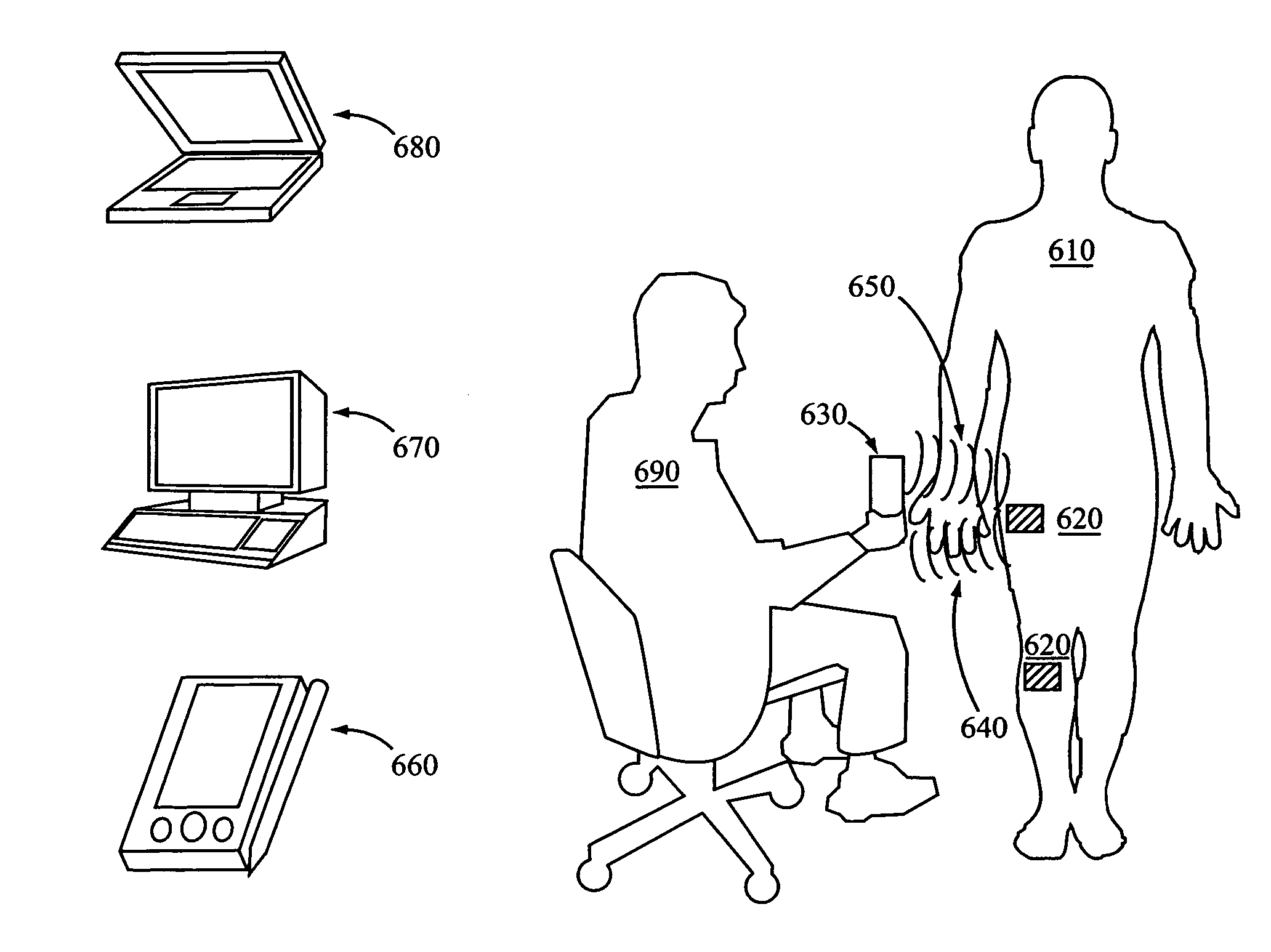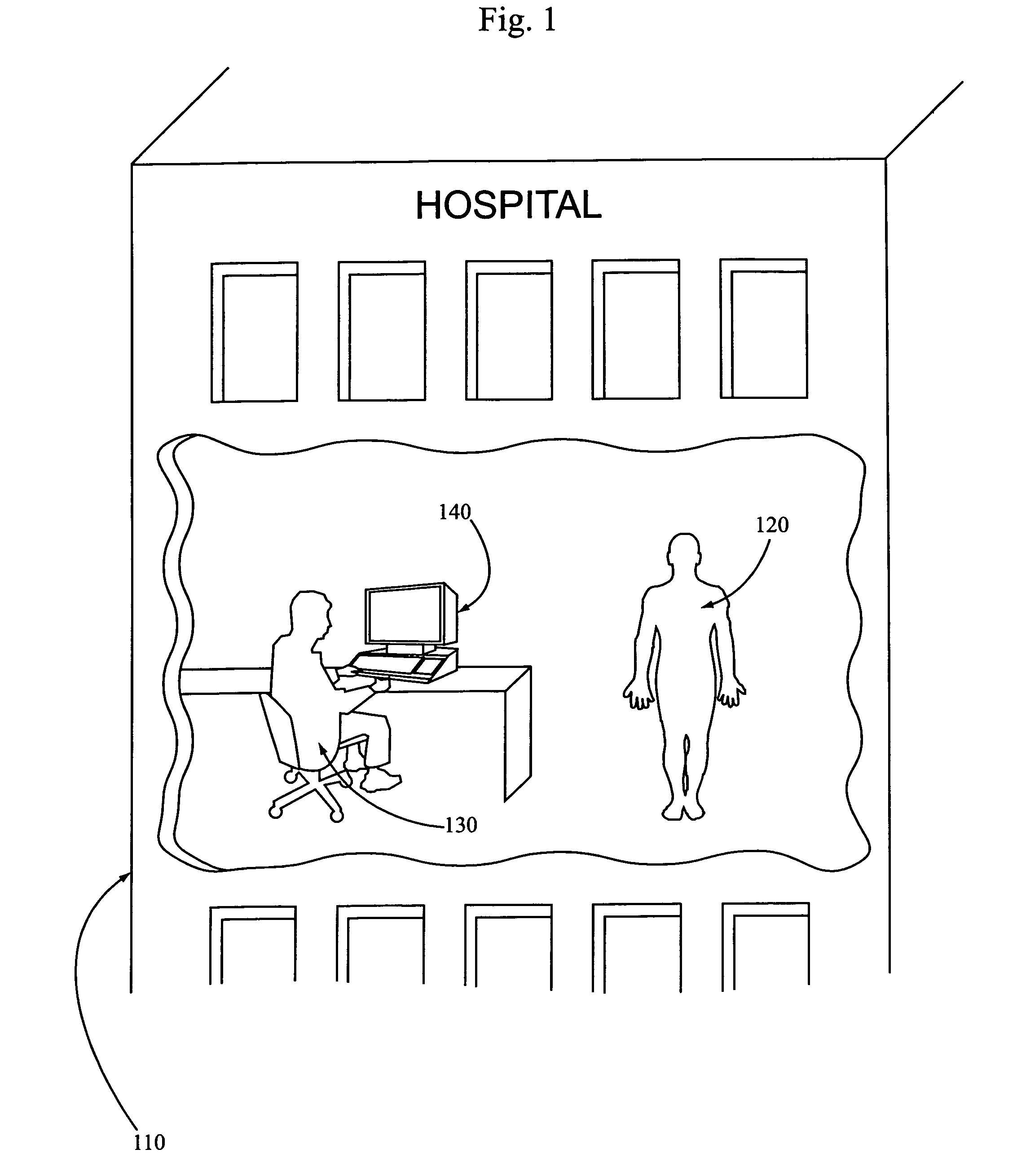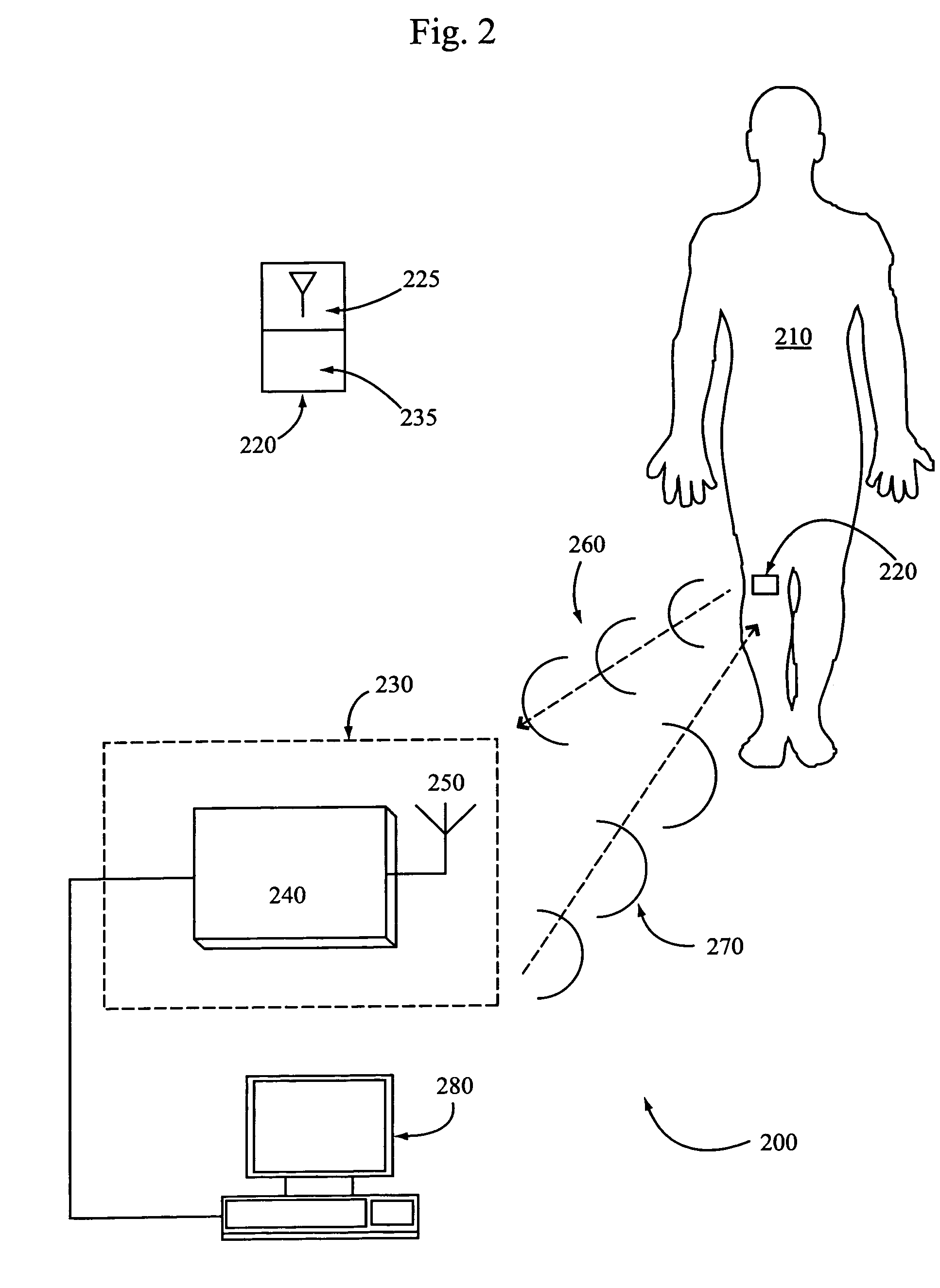Method and apparatus for implant identification
a surgical implant and method technology, applied in the field of radio frequency identification techniques, can solve the problems of wear and tear on some implants, certain wear and tear, and wear and tear on others
- Summary
- Abstract
- Description
- Claims
- Application Information
AI Technical Summary
Benefits of technology
Problems solved by technology
Method used
Image
Examples
Embodiment Construction
[0010]In accordance with a feature of an embodiment of the invention, there is provided a method for obtaining information concerning a surgical implant that includes presenting a subject having one or more RFID-tagged surgical implants into a radio frequency field of a reader device, transmitting an interrogation signal from the reader device, receiving the interrogation signal by the one or more radio frequency tagged surgical instruments, transmitting back to the reader device, an RF signal containing data including at least positional data from the radio frequency tags of the one or more surgical implants, and comparing the positional data received from the radio frequency tags of the one or more surgical implants to a database.
[0011]In accordance with another feature of an embodiment of the invention, there is provided a method for obtaining information concerning an implant that includes acquiring positional information about at least one RFID-tagged screw affixed to a surgica...
PUM
 Login to View More
Login to View More Abstract
Description
Claims
Application Information
 Login to View More
Login to View More - R&D
- Intellectual Property
- Life Sciences
- Materials
- Tech Scout
- Unparalleled Data Quality
- Higher Quality Content
- 60% Fewer Hallucinations
Browse by: Latest US Patents, China's latest patents, Technical Efficacy Thesaurus, Application Domain, Technology Topic, Popular Technical Reports.
© 2025 PatSnap. All rights reserved.Legal|Privacy policy|Modern Slavery Act Transparency Statement|Sitemap|About US| Contact US: help@patsnap.com



